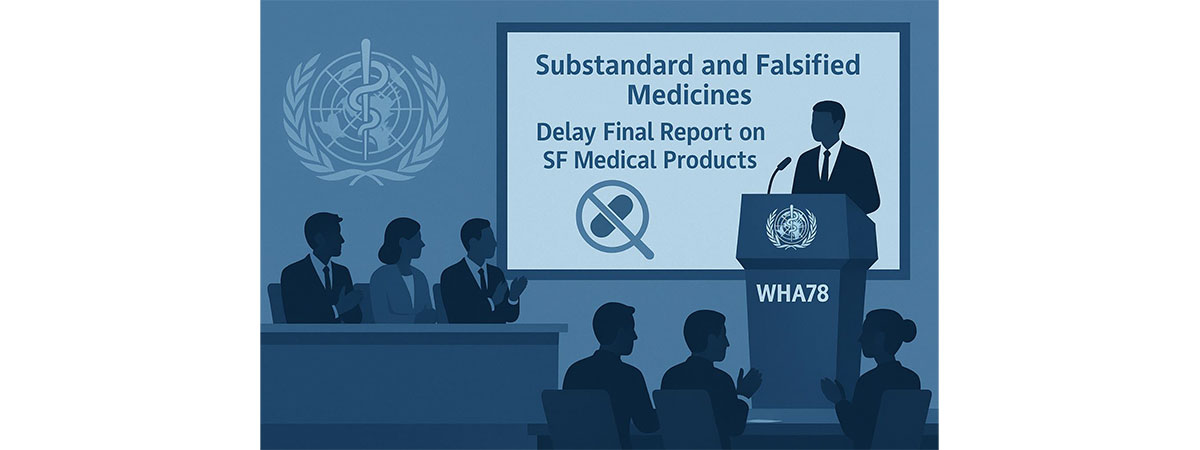WPA Calls for Urgent, Patient-Centered Action as WHO Delays Final Report on Substandard and Falsified Medicines
The WPA acknowledges the decision made at the Seventy-eighth World Health Assembly 2025 (WHA78) to defer the finalization of the report on substandard and falsified (SF) medical products until the 2026 Assembly. While recognizing the complexity of the issues under review, WPA expresses deep concern about the growing global threat that SF medical products pose to patient safety and public health particularly in vulnerable and underserved communities.
The delay follows a request by the Steering Committee of the Member State mechanism (MsM), which seeks additional time to consider recommendations from the 2023 independent evaluation. The final report will now be reviewed at the Seventy-ninth World Health Assembly (WHA79) via the WHO Executive Board in early 2026.
Patients Continue to Suffer While Delays Persist
WPA underscores that patients are the first and most severely impacted victims of substandard and falsified medicines facing avoidable harm, prolonged illness, treatment failures, and even death. With 1 in 10 medical products in low and middle income countries estimated to be SF, and global economic losses between US$ 75–200 billion annually, the stakes could not be higher.
“Every delayed decision means more lives put at risk,” said Hussain Jafri, CEO WPA. “We urge all stakeholders to accelerate their commitment and prioritize patient safety above procedural and institutional hurdles.”
Strengthening Global Coordination with Patient Involvement
WPA acknowledges the valuable work of the Member State mechanism (MsM) since its establishment in 2012 and welcomes WHO’s ongoing support to refine and strengthen its operations. However, WPA calls for greater transparency and meaningful engagement with patient organizations and civil society in all aspects of this process.
The 2023 evaluation rightly called for:
Improved regional engagement and representation
Broader stakeholder collaboration, including patients
Enhanced agility and operational effectiveness of the mechanism
WPA believes these improvements must be urgently implemented, and that patient voices must be central to any reformed mechanism or strategy.
Digital Threats and Regulatory Gaps Require Stronger Action
The rise in SF incidents nearly tripling between 2019 and 2023, is exacerbated by factors such as:
Online distribution of medicines with weak oversight
Humanitarian crises and conflict zones
Under-resourced regulatory systems
WPA calls for the development of a patient-focused, real time global surveillance and alert system, strong regulatory frameworks across all regions, and investment in public awareness campaigns to empower patients to identify and report SF products.
Looking Ahead
As the final report is prepared for WHA79, the WPA urges WHO and Member States to:
Prioritize patient safety in all deliberations
Ensure timely action and avoid further procedural delays
Integrate patient voices meaningfully in the mechanism’s reform and implementation
Substandard and falsified medicines are not just a supply chain issue, they are a human rights issue. Every patient deserves access to safe, effective, and quality-assured medical products.
WPA remains committed to working alongside WHO, governments, regulators, and partners to ensure that global action against SF medical products is bold, inclusive, and focused on protecting those who matter most: the patients.


